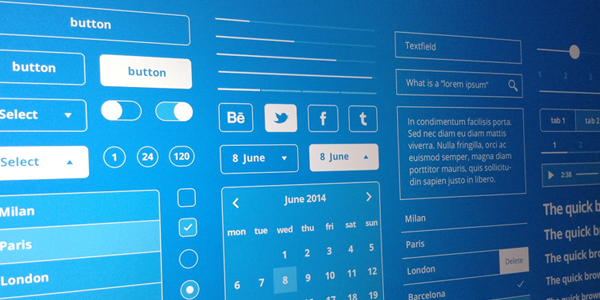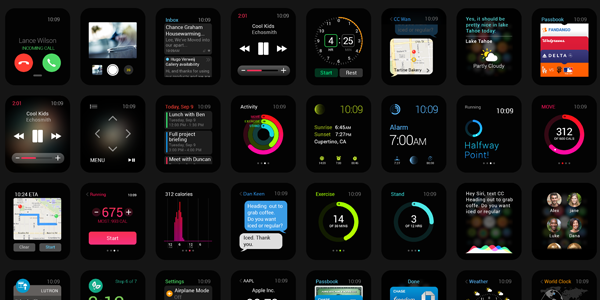Last Updated on March 6, 2024
It is not always obvious which app platform is best for your application. As you have most likely noticed, not all mobile applications are created equal. Choosing the right platform on which to launch your app can be a key to your application’s success or failure. Each platform comes with its own set of advantages and limitations.
Choosing from among the various competing platforms requires a clear-eyed valuation of the target audience for your mobile app, the technical strengths and weaknesses of each platform and a review of the long-term benefits of the platform.
1. Who is Your Target Audience?
One of the most basic determining factors when it comes to choosing your mobile app platform is undoubtedly your target audience. It is of utmost importance to keep your target audience in mind when choosing your mobile application development platform. It cannot be denied that Android and iOS enjoy the largest user base whilst other platforms such as Windows Mobile, Blackberry and others take up considerably smaller shares of the pie. Demographic information on the users of each platform can help you determine which is the most appropriate to start with for your application.
2. What technical features do you want?
If you want to build a complex application that runs specific functionality you should investigate the various platforms to determine which is the best option for your business. Knowing what each platform can deliver– and what it is likely to offer in the days to come – can help you prepare for the future as well. Items like beacons can impact future development options.
3. Can you make money?
Mobile application development specialists understand that not all platforms provide the same financial rewards for app developers. If you want to make money, consider app platforms which enjoy larger user bases, such as Android and iOS.
4. Fiscal Factor
Financial factor is the most important thing to look for when it comes to building a mobile app. It is of paramount importance to find out in advance, how much a mobile application development platform is going to cost you. This will help you determine whether it is worth the investment. Apps that cost less in the beginning may prove to be an extremely expensive choice in the long run. In the present day there are several mobile application development companies that offer high-quality mobile application development services, and they’re also capable of working within your budgetary concerns.
5. Choose a stable and established mobile application platform.
This is another key aspect that you should look for when building your mobile app. There has been a significant rise in the app development in the mobile industry. With a huge number of applications being developed every day, it is imperative to find out whether the platform is there to stay. Thus, consider the long-term repercussions of choosing a particular mobile application platform.
Here are some popular types of mobile apps:
Native apps

A native application is an app program that has been designed for a particular device or platform. Native apps are typically installed through an app store like Apple’s iTunes App Store and Google Play. These mobile apps are powerful, fast and reliable. They are developed for a specific platform, and can use all the device’s features, such as contacts, camera, GPS, and so on.
Advantages of Native Mobile Applications
There are many positive aspects to native applications. If you want to get biggest bang for your buck, then you should consider native apps. You get full access to all the device features such as GPS, camera, accelerometer, and so on. Another benefit is that native apps, as the name suggests, often a native feel and look, and utilize native interfaces. This makes them user-friendly.
Disadvantages
The major downside to these apps is that you need to develop a native application for each platform you want to support – Apple, Android or Windows Mobile. If you only require one platform, such as for an internal usage application, then it simplifies your situation. For most businesses, however, Android and iOS are definitely the primary starting point.
Hybrid App

Hybrid apps are like any other applications you will get on your phone. You can find them in app stores and install on your device. With hybrid apps, you can engage your friends through social media, play games, take photos and much more. Hybrid mobile apps (like websites on the internet) are built with the addition of several web technologies such as JavaScript, CSS and HTML.
Advantages of Hybrid Apps
Hybrid mobile applications can be easier to develop and are cost-effective as well. Since most codes can be written in CSS, JavaScript and HTML, which are easy to port within other platforms, like iOS and Android.
Disadvantages
Hybrid apps are often easy to identify due to their functionality. While the offer some unique options, they’ll never have the functionality of native apps. They can also prove to be difficult to maintain. This is one of the key reasons Facebook dumped their hybrid app for native apps.
Android

Android is a mobile app platform designed for devices powered by Android OS. Android apps can be downloaded from the Google Play Store, Amazon App Store and other sites, and the apps can run on Android powered tablets, smartphones and TVs.
Advantages
Android permits all device manufacturers to build any Android powered device, similar to what Windows is doing with PCs and phones. This means that Android enjoys a large user-base. There are also no strict rules when it comes to Android mobile application development.
Disadvantages
Android developers seem to make less money. It also requires a lot of development and testing time.
iOS

Advantages
If you own an Apple device – iPhone, iPod, or iPad, then you have a device that runs iOS. The biggest reason to choose an iOS platform has to do with the fact that its developers tend to make the most money. Developing an iOS app is also simpler.
Disadvantages
Developers often have less flexibility when building an iOS application. And there is a strict approval process and you will also need to adhere to Apple’s requirements. Therefore, you will need to check Apple’s guidelines to make sure you comply before you begin to put your app together.
Conclusion
When targeting a large user base, native mobile apps can prove to be the best choice. You can determinewhich platform is right for you using the factors given herein.

